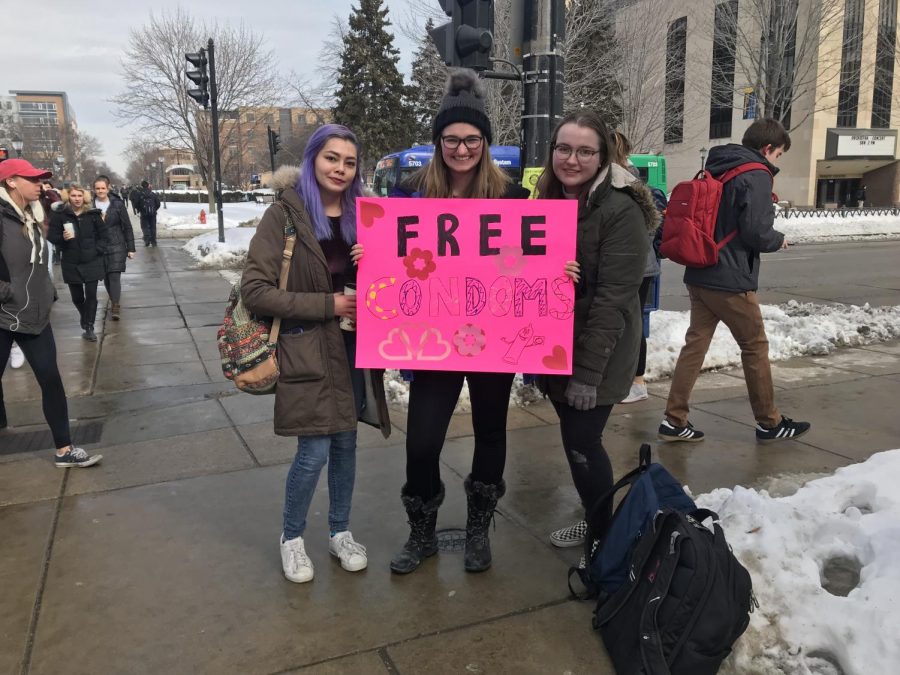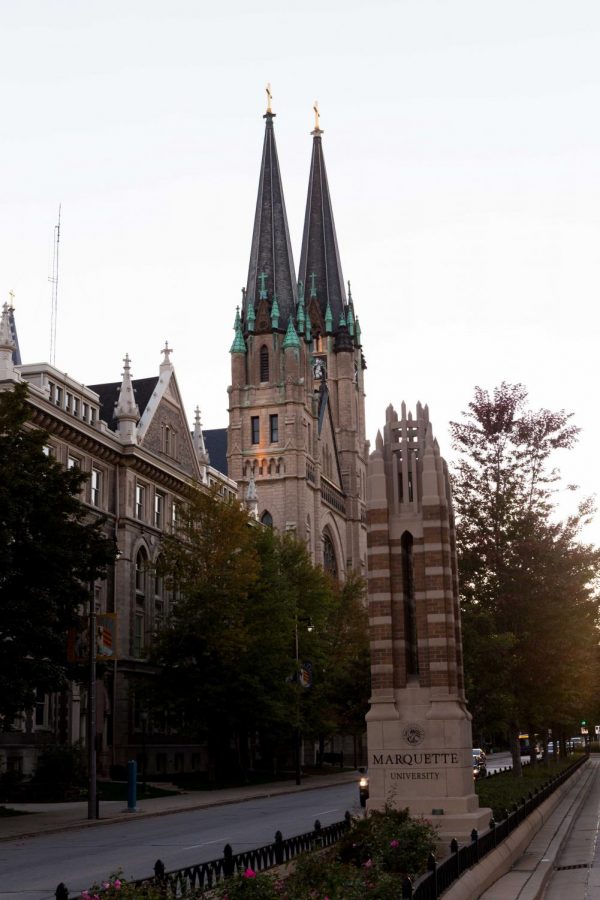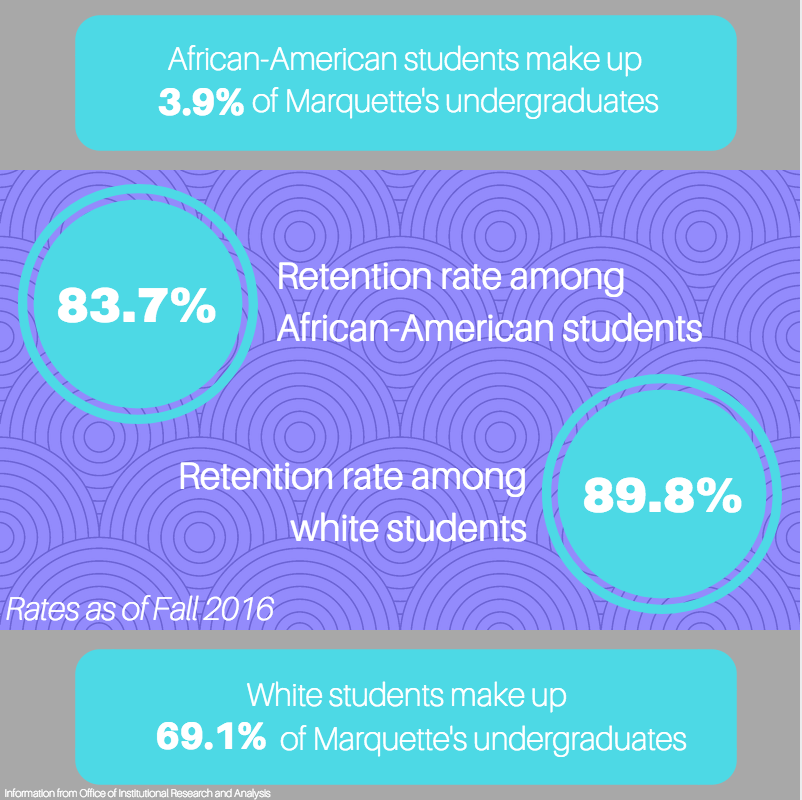A group of Marquette students distributed condoms to peers in front of Raynor Memorial Libraries at approximately 9:30 a.m. Feb. 13.
The students ran out of their 360 condoms in about an hour and a half, said Maria Bunczak, a sophomore in the College of Nursing and organizer of the event.
The group gave out envelopes, each of which contained three condoms and an information sheet discussing consent, campus resources and possible responses to partners who may not want to use condoms.
The group, which consisted of about 10 student volunteers, was independent of a Marquette organization. While the group members knew each other through Marquette Empowerment, the event was in no way sponsored by the organization, Bunczak said.
Due to Marquette’s Jesuit Catholic identity, the event could not be done through any official Marquette-affiliated organization, Bunczak said.
University spokesperson Brian Dorrington said Marquette University deeply values its religious identity and does not distribute contraceptives through its student health services.
“We do not control information or materials that are handed out on public sidewalks,” he said in an email.
To get volunteers, Bunczak said she contacted individuals who participated in the same activity last year. She also said she recruited students by sending an email to the Empowerment directory, in which she specified that the event was not directly affiliated with the organization.
While there was not a condom hand-out event held last semester, the students typically try to hold events once a semester, said distributor Kim Griesenauer, a junior in the College of Health Sciences. One event is usually around Halloween while the other is around Valentine’s Day.
The group received fewer condoms to hand out this Valentine’s Day than last. Last spring, the local Planned Parenthood provided 500 condoms for distribution. This year, Bunczak said she reached out to Milwaukee’s Family Planning Health Services clinic and received 300 condoms.
“It’s quite a burden to ask one clinic to donate, like, 500 condoms,” Bunczak said.
When requesting condom donations, she said she encountered challenges with four different medical companies due to Marquette’s religious affiliation.
“They were like, ‘You’re trying to distribute on a Catholic property – That could be bad for our name,’” she said.
However, Bunczak said she persisted due to the prevalence of sexually transmitted infections on Marquette’s campus and in the 53233 zip code.
“Reducing the number of infections on a campus, regardless of whether or not it involves you or not, is always a positive,” Bunczak said. “It’s a public health issue and trying to push away or prevent that isn’t good in any way.”
Griesenauer said she felt students need contraceptive resources since Marquette does not supply these items.
“(Students) never know when the time might come when they want to get it on with somebody,” Griesenauer said. “We want to try to promote safe sex and promote sex positivity.”
Bunczak said group members danced with a poster, yelled statistics and made other remarks while distributing condoms.
“I think it’s ridiculous that Marquette University … will let the pro-lifers have their baby graveyard,” she said. “You want to prevent abortion? Use a condom. That was one of the things I yelled out today at one point.”
Bunczak said she thinks students and professors alike reacted positively to their efforts.
“There were two people who told us today that we were doing the Lord’s work,” she said. “(There were) other people who were asking, ‘How many can I take?’ and we’re not super strict on that.”
Griesenauer said Marquette students who choose to be sexually active should have access to education and resources.
“Not everyone here is Catholic, or they might not follow and adhere very strictly to the Catholic laws,” she said. “There are some people that are going to choose to be sexually active, and when people make that decision, they need to be able to have the resources in order to do it safely.”







